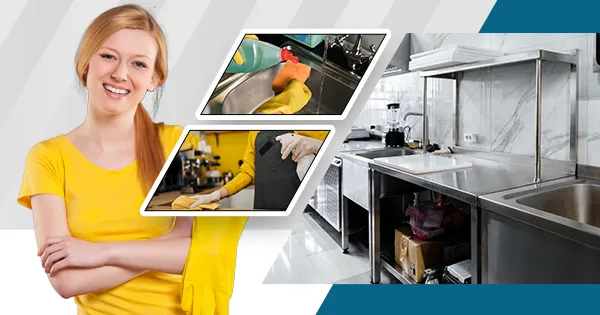Maintaining a spotless commercial kitchen goes beyond routine cleaning. Deep cleaning is essential for hygiene, safety, and operational efficiency. Let’s explore why this process is crucial for your business.
The Importance of Deep Cleaning in Commercial Kitchens
Deep cleaning tackles areas that regular cleaning misses, including hidden grease, grime, and bacteria. Investing in professional deep cleaning in the UK ensures your kitchen meets health standards and prevents potential hazards.
Health and Safety Benefits
Regular deep cleaning reduces the risk of foodborne illnesses and ensures compliance with hygiene regulations. Clean surfaces and equipment prevent contamination and promote a safe working environment for staff.
Extending the Life of Kitchen Equipment
Grease and dirt buildup can damage kitchen appliances over time. Services like kitchen exhaust duct cleaning in the UK maintain ventilation systems, improving efficiency and longevity of your equipment.
Enhanced Operational Efficiency
A clean kitchen allows staff to work more efficiently, reducing downtime caused by equipment failure or health inspections. Deep cleaning creates a smoother workflow and supports consistent service quality.
Conclusion
Deep cleaning in commercial kitchens is not just about appearances—it’s an investment in safety, equipment longevity, and operational excellence. Partnering with professional cleaning services ensures your kitchen remains hygienic, compliant, and fully functional.


